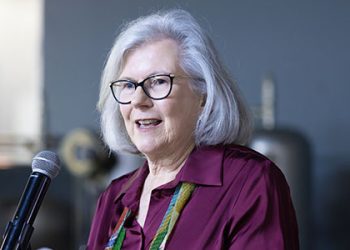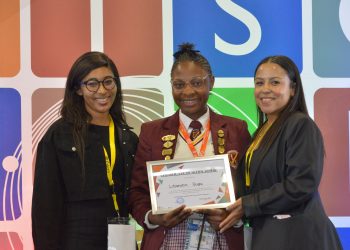The Department of Science and Innovation (DSI) will continue to harness science and technology to support the sustainable and inclusive development of South Africa’s society and economy with specific focus on the marginalised and poor.
Using science to address challenges
This is what Dr Nzimande, minister of higher education, science and innovation, said during his 2022 budget vote address to the parliamentary portfolio committee on higher education, science and innovation early this week stated ‘science should server society’.
He said the DSI has deployed science and technology to help the country address some of its critical challenges such as Covid-19 pandemic, recent KwaZulu-Natal floods, slow economic growth, and chronic energy crisis, among others. The DSI’s total budget is R9, 1 billion for 2022/23, up from R8, 9 billion in 2020/21. Dr Nzimande said the majority of the department’s budget is spent on transfers to entities, with the National Research Foundation receiving the single largest share.
Decadal Plan
He said his department’s budget is anchored on the 2019 White Paper on sciences, technology and innovation (STI) and the Decadal Plan that was approved for implementation by cabinet in 2021 and which highlights critical societal challenges facing the country.
Key areas of focus
He said other key focus areas for DSI in 2022 include, to mention a few, vigorously supporting the government’s Economic Reconstruction and Recovery Programme (ERRP); building long-term national capacity to deal with COVID-19 and future pandemic threats, securing higher levels of public and private investment in South African research, development and innovation and supporting inclusive education and skills development.
Dr Nzimande said the DSI has launched Hydrogen South Africa Roadmap to support innovation in South Africa’s energy markets. The idea, he said, is to unlock the potential of new sources clean energy in line with the country’s goal to switch from a carbon-intensive to a carbon-neutral economy.
Making mining safer
Mining is another area that will be supported and modernised through continuous research and development, he said. This intervention will ensure safer working environment for miners, increase the lifespan of the mines as well as beneficating the country’s minerals.
Last year the DSI, working in partnership with Anglo American Platinum, Bambili Energy and ENGIE, has initiated a feasibility study on the South African Hydrogen Valley. The parties have identified nine catalytic projects across the mobility, industrial and building sectors in the first phase of the hydrogen economy programme.
The Hydrogen Valley corridor covers Johannesburg Hub, the Mogalakwena in Limpopo and the Durban and Richards Bay areas, and has the potential to create 14 000 to 30 000 direct and indirect jobs per year by 2030. By 2050 it will potentially contribute between $3, 9 and $8, 8 billion to South African GDP, said Dr Nzimande.
To help the existing industries to decarbonise and meet the country climate change targets, the DSI will help develop technologies that will reduce emissions from coal-fired boilers in the cement, energy, steel, and paper and pulp industries through the CoalCO2-X project.
District Development Model
The minister said they are also supporting municipalities to drive innovation-led economic development agenda. This, he said, will help accelerate the delivery of basic services by government and municipalities as part of government’s District Development Model.
This initiative has seen over 200 young emerging innovators supported and funded through Living Labs Programme in township and rural communities in KwaZulu-Natal, the Western Cape, the Eastern Cape and the Free State.
Similar significant progress has been recorded in agro-processing value chain development through the implementation of Agricultural Bio-economy Innovation Partnership Programme. “We have intensified our agricultural research efforts, and introduced new smart and climate-sensitive agriculture technologies, in a bid to ensure food security and the modernisation of the South African agricultural sector,” said Dr Nzimande.
Developing vaccine capability
Through consistent research and development, the DSI has also made headway in developing the country’s domestic vaccine manufacturing capability. This includes strengthening epidemiological surveillance and strategic decision-making capability guided by the COVID-19 National Policy Data Observatory (NPDO) hosted by the DSI.
The country has also reached an advanced stage in establishing Africa’s first COVID-19 mRNA vaccine technology transfer hub, with strong public and private sector participation, backed by the World Health Organization together with its COVAX partners. In addition, government, Biovac Consortium have entered into a strategic partnership with Pfizer/BioNTech to produce approximately 100 million doses of Pfizer/BioNTech mRNA vaccine annually.
“In order to respond to the local and continental demand for COVID-19 testing, and to reduce our dependence on imports, we established a fund which led to the development of two new COVID-19 diagnostic tests, one by Medical Diagnostech and the other by CapeBio. Both of these diagnostic tools have been approved by the South African Health Products Regulatory Authority,” said the minister.
Providing assistance during KZN floods
The DSI has also contributed significantly during the recent devastating floods in KwaZulu-Natal by providing input using remote sensing technologies, in particular satellites to provide imaging for accurately targeting water flow patterns and their effects on transport infrastructure systems, and data for better spatial planning, said Dr Nzimande.
The Council for Scientific and Industrial Research and the South African National Space Agency also stepped up and worked with various government departments including the Water Research Commission, he added.
Stimulating science tourism
Dr Nzimande also said South African and Australian governments are signatories to co-host the Square Kilometre Array (SKA) Observatory array telescopes and associated infrastructure to the value of €2 billion over the period 2021-2030. This partnership will produce a whole new generation of science and scientists, many of whom are now being trained in South Africa. In addition, it is expected to boost science awareness and outreach, stimulate science tourism in the region and create employment.
Prioritising digital skills training
He said through its 10 year plan, DSI has identified the digital economy as one area into which it will channel its resources. As part of this, Dr Nzimande said he has instructed the National Skills Fund to prioritise training in digital skills, especially for the youth. Six foundational digital domains have been identified and these include:
- artificial intelligence
- robotics and cybernetics
- augmented
- virtual and mixed reality
- modelling and simulation
- blockchain and cybersecurity
- the Internet of things, cloud-to-edge computing, and
- networking and quantum computing.
All these developments, according to the minister, will be implemented as part of the Foundational Digital Capabilities Research programme.







